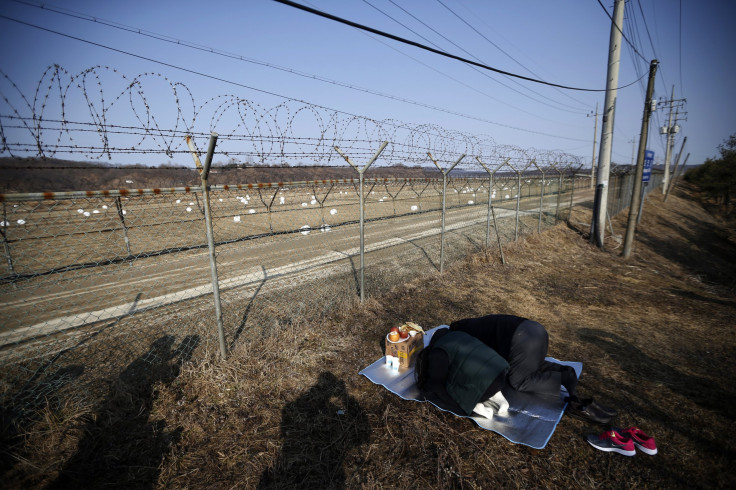High Level Meetings Between North And South Korea Begin At Panmunjom; Family Reunions To Be Discussed

South Korea and the reclusive North are holding a high-level meeting Wednesday -- the first since attempts to begin a discussion last September fell through -- to discuss a likely reunion of separated families residing on both sides of the border, and South Korea's annual military drills with the U.S., media reports said citing Kim Eui-do, a spokesperson for the Unification Ministry.
The talks, which are being held in the heavily fortified demilitarized zone of Panmunjom involve Kim Kyou-hyun, a South Korean presidential security adviser, and Won Tong Yon, a senior official from North Korea's ruling Workers’ Party, news reports said. The meeting, which is being held at the urging of North Korea, closely precedes the Feb. 20-25 reunion of families separated by the Korean War, the first in three years.
"This is an opportunity to open a new era of the Korean peninsula," the security adviser said, according to BBC, adding: "I would like to attend the meeting with 'open attitude and mind' to study the opportunity."
Both countries have held fewer than 20 rounds of reunions since 2000 and have technically remained at war after the 1950-53 conflict, which ended without a peace treaty. The last high-level meeting including defense ministers was held in 2007, according to a report from The Guardian. Last year, a meeting was arranged to discuss the reunions but was canceled at the last minute as both sides could not come to an agreement on who would attend the meeting.
“The standoff over the last six years will be discussed in an open atmosphere tomorrow, and both sides will propose ways to end it. This clearly shows North Korean leader Kim Jong Un is serious about mending ties because his country is cornered at a time he needs to rebuild its economy,” Chang Yong Seok, a senior researcher at Seoul National University’s Institute for Peace and Unification Studies, told Bloomberg.
Several issues have contributed to the continuing standoff between the two nations. North Korea has demanded that the U.S. and South Korea cancel their annual joint military drills, which are set to begin on Feb.24, fearing that such drills are a preparation to invade the country. In retaliation, North Korea withdrew its invitation to a U.S. human rights envoy to discuss the detention of Kenneth Bae, an American citizen held by Pyongyang. The U.S. State Department had expressed disappointment and said that its drills with South Korea had no relation to Bae.
Meanwhile, South Korea has so far dismissed the North's recent proposals for a series of measures that Pyongyang says are needed to ease tensions. The South says that North Korea must first take nuclear disarmament steps and show how sincere it is about its stated desire to improve ties. In January, a U.S. intelligence official had said that North Korea had expanded the size of its uranium enrichment facility and has restarted a reactor, which had been shut down in 2007.
South Korea has also suspended tours to the North’s Mount Kumgang resort after a tourist was shot down by North Korean soldiers in 2008. The North is reportedly expected to push for a resumption of these tours at the ongoing talks, as this was a lucrative source of income for the impoverished country.
© Copyright IBTimes 2025. All rights reserved.






















